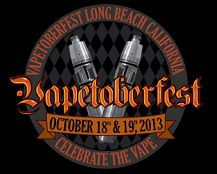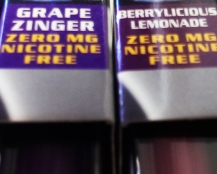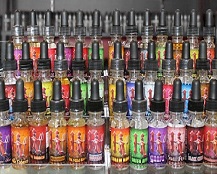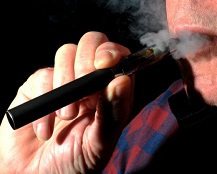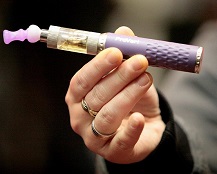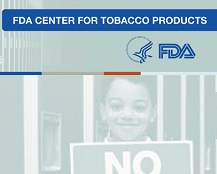With yet more bans on indoor vaping, anti-THR research, a litany of litigation, more “think of the children” nonsense designed to drum up support for restrictions on vaping and public health advocates starting to wonder how they should reconcile their evidence-free opposition to vaping with the growing body of evidence that it’s much safer than smoking, it’s the Week in Vaping.
Today the Royal Society became the site of the E-Cigarette Summit, a day dedicated to debating the safety, efficacy and regulation of e-cigarettes. The day was split into three sessions, firstly looking at the safety and efficacy, then moving on to regulation, and finally looking at the controversies surrounding the technology.
The city of Beverly Hills recently proposed a pair of ordinances which would ban the usage of e-cigarettes in places where smoking is already outlawed and place a temporary ban on their sale pending further investigation into their safety.
An interview with RunnerX (Jim Oliver), the man who ran the entire New York City Marathon while vaping.
Vaping makes you too drunk to drive safely, reduces your chances of quitting smoking, should be banned outdoors, shouldn’t be allowed on college campuses and is grounds for not hiring somebody, if you believe the news this week. In other words, it’s exactly what you’d expect from the Week in Vaping.
A news story about a kid purchasing an e-cigarette is bound to get those opposed to the technology up in arms, and a recent story from British Columbia drives that fact home very clearly indeed.
TL;DR? Gov. Jay Robert “J.B.” Pritzker announced the expungement and forgiveness of over half a million Illinois residents with minor,...
Amidst continual pressure by the FDA to regulate electronic cigarettes, industry continues to thrive and move forward under the guidance of several intelligent, level-headed minds. Among the most tempered and admired voices in the field is Boston University School of Public Health's Dr. Michael Siegel.
“Won’t somebody please think of the children” is one of the core rallying calls of the anti-vaping fanatics, and Cancer Research UK is evidently paying attention.
According to the results, youth use of e-cigarettes doubled between 2011 and 2012, but the truth can’t be crammed as succinctly into a jaw-dropping headline. To see what the results really mean, you need to look at what they actually did and what they actually found.
A news story is making the rounds about carelessly discarded spent e-cig cartridges causing motorists some trouble by puncturing their tires.
Oklahoma Senator Rob Johnson’s proposed bill to impose a small tax on e-cigs, formally ban their sale to minors and require any vendors to be licensed seems like a harmless and sensible piece of legislation on first reading about it. However, there is a darker vein lurking in the densely layered legalese and clunky phrases like “vapor products,” since the bill would also make it illegal to buy e-cigs online and for sellers in the state to buy their products from anybody other than Oklahoma-based distributor or wholesaler.
Another week, and more legislation, arguments about the risks and benefits of vaping, media stories about explosions and potential poisonings, new vaping gear and great blog posts from the community. So what’s been going on in the world of vaping?
After a string of court cases in Germany revolving around the possible classification of e-liquids as medicines, the Federal Administrative Court has decisively ruled that they don't meet the definition, and e-liquids can therefore continue being sold freely.
Another week, and more of the usual in the world of vaping. People overestimate the risks of e-cigarettes, moves to ban indoor vaping continue in many localities and even in public housing units, misused mechanical mods explode, countries grapple with how to regulate e-cigs and the onslaught of anti-vaping nonsense continues.
The British newspaper the Leicester Mercury misquoted Prof. Jason Hughes claiming he said e-cigarettes could be a gateway to harder drugs.
Getting caught with an e-cigarette in some schools can get you suspended, tested for drugs and lead to “possession of drug paraphernalia” being marked on your school record. This means that for some students in states such as North Carolina, New Jersey, Washington and Connecticut, you’re better off being caught with cigarettes in school than e-cigarettes.
The FDA’s Center for Tobacco Products has announced it will be holding a public listening session to discuss “any topic relevant to science-based regulation of tobacco products” on April 5th in San Diego.
On November 8, California voters decided to say a firm ‘yes’ to Proposition 56, which will increase the excise tax on cigarettes and other products containing nicotine by a hefty margin.






